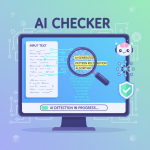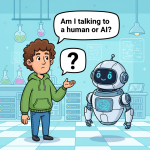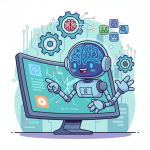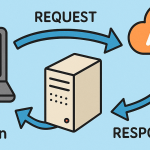Artificial intelligence has reached astonishing levels of sophistication in recent years, with tools like Google Gemini redefining how humans and machines collaborate. Yet a critical question remains: can Gemini AI make mistakes?
The short answer—yes, it can. Despite its cutting-edge architecture, Gemini AI, like all large language models (LLMs), is not infallible. It can misinterpret queries, produce hallucinations, or provide outdated or biased information. Understanding why these errors happen and how to mitigate them is essential for developers, researchers, and everyday users in 2026.
What Is Gemini AI?
Before exploring its limitations, it’s vital to understand what Google Gemini AI is. Gemini represents Google DeepMind’s next-generation multimodal model, succeeding Bard and built to rival OpenAI’s GPT series.
Gemini integrates text, image, code, and audio comprehension into a unified system. Its goal is not just to respond but to reason, plan, and generate creative or analytical outputs across multiple formats.
Key Features of Gemini AI
Multimodal Understanding – Processes text, images, and voice simultaneously.
Advanced Reasoning – Performs complex problem-solving and code generation.
Context Awareness – Understands user intent based on conversational history.
Integration with Google Workspace – Assists with Gmail, Docs, Sheets, and Search.
Learning and Adaptation – Continuously fine-tuned through human feedback and usage data.
Even with these advancements, Gemini AI is not immune to human-like flaws or computational errors.
Why Can Gemini AI Make Mistakes?
Like any intelligent system, Gemini operates on probabilities and data patterns, not human intuition or consciousness. Mistakes often stem from the following causes:
1. Data Limitations and Bias
AI models learn from vast datasets sourced from the internet and licensed materials. If those datasets contain inaccuracies or biases, Gemini can replicate or amplify them.
For example:
If certain viewpoints dominate the training data, Gemini may present skewed perspectives.
Outdated data can cause it to reference obsolete facts or technologies.
2. Hallucinations (Fabricated Responses)
One of the most common AI errors is hallucination—when the model generates confident but incorrect information.
Example:
A user might ask, “Who won the Nobel Peace Prize in 2026?” and Gemini could fabricate an answer if that data isn’t publicly available yet.
These hallucinations occur because the model predicts text based on context rather than retrieving verified facts.
3. Ambiguity in Prompts
Human communication is inherently ambiguous. When prompts lack clarity, Gemini may misinterpret intent.
For instance:
Query: “Summarize the book ‘Dune’ in 20 words.”
Gemini might summarize the movie adaptation instead if the context isn’t clear.
4. Overgeneralization from Training Data
Gemini might generalize patterns that don’t apply universally.
For example, it could infer that “all startups struggle with funding” because the majority of training examples reflect that narrative, even though exceptions exist.
5. Technical or Integration Errors
When Gemini interacts with tools like Google Workspace, APIs, or external databases, system-level issues—network errors, API misfires, or permission restrictions—can lead to faulty or incomplete outputs.
Examples of Gemini AI Mistakes in Real Scenarios
Even Google’s most advanced model can stumble. Below are examples (some documented, some hypothetical) of where Gemini AI might falter:
| Scenario | Possible Mistake | Impact |
|---|---|---|
| Medical Data Interpretation | Misreads symptom descriptions or confuses similar conditions | Misleading health advice |
| Financial Forecasting | Uses outdated or biased economic data | Inaccurate projections |
| Programming Help | Suggests insecure code or deprecated libraries | Security vulnerabilities |
| Content Generation | Produces fabricated statistics or non-existent citations | Reduces credibility |
| Multilingual Queries | Misinterprets idioms or cultural nuances | Contextual misunderstanding |
These errors illustrate that even powerful AI tools require human supervision and critical evaluation before real-world deployment.
How Google Reduces Errors in Gemini AI
Google DeepMind has implemented several safeguards to make Gemini more reliable and trustworthy. However, these measures minimize—rather than eliminate—errors.
1. Reinforcement Learning from Human Feedback (RLHF)
Gemini AI is trained using human feedback loops, where evaluators review responses and rank their quality. The system learns which answers are more accurate, balanced, or contextually appropriate.
2. Multimodal Validation
Gemini can cross-check information across multiple data types—text, image, and sound—reducing the chance of errors when analyzing real-world data.
3. Fact-Checking Pipelines
Google integrates fact-verification subsystems within Gemini’s response generation. These help detect misinformation by comparing outputs with trusted data repositories such as Google Search Knowledge Graph.
4. Safety Filters and Bias Controls
AI safety teams continuously monitor Gemini for bias, harmful outputs, or discriminatory language. Updates and patches are rolled out to align with ethical AI standards.
5. User Feedback and Iterative Learning
Every interaction provides insights into user satisfaction. Gemini incorporates feedback-driven fine-tuning, improving precision over time through continuous updates.
Comparing Gemini AI with Other Models (GPT-4, Claude, Mistral)
To understand Gemini’s strengths and weaknesses, it’s useful to compare it with other leading LLMs in 2026:
| Feature | Gemini AI | GPT-4 (OpenAI) | Claude (Anthropic) | Mistral AI |
|---|---|---|---|---|
| Multimodal Input | Yes (text, image, audio) | Limited (text/image) | Text-only | Text-only |
| Reasoning Ability | Advanced | Strong | Moderate | Emerging |
| Error Tendency (Hallucination Rate) | Low-to-moderate | Moderate | Moderate | High |
| Data Transparency | Medium | Limited | High | Limited |
| Integration Ecosystem | Google Workspace | Microsoft Copilot | Slack, Notion | Open tools |
While Gemini outperforms competitors in integration and multimodality, its reasoning errors—especially in open-ended queries—still require human oversight.
Can Gemini AI Learn from Its Mistakes?
Gemini AI does not “learn” from individual user interactions in real time, as that would raise privacy and data retention concerns. However, aggregated feedback across users informs periodic model updates.
How It Improves Over Time
Data Expansion: Incorporates more recent, high-quality datasets.
Bias Reduction: Refines algorithms to ensure diverse, balanced responses.
Prompt Sensitivity: Enhances understanding of nuanced or multi-step queries.
Self-Consistency Checks: Evaluates multiple possible answers internally before selecting the best one.
Despite this, Gemini cannot autonomously recognize or correct a mistake once it’s made—it requires human correction or retraining.
How Users Can Minimize Gemini AI Mistakes
AI users—developers, marketers, or researchers—can take proactive steps to reduce errors when using Gemini.
1. Be Specific in Prompts
Vague or incomplete prompts increase the risk of incorrect responses.
✅ Example:
Instead of “Explain blockchain,” use “Explain blockchain technology for healthcare data security in 2026.”
2. Verify Facts with External Sources
Always cross-reference AI outputs with credible sources, especially in academic, legal, or financial contexts.
3. Avoid Overreliance on Generated Code or Data
When using Gemini for coding or data analysis, perform manual reviews or run automated testing to catch potential flaws.
4. Use Context Continuity
Provide conversational context to help Gemini maintain logical coherence across multiple exchanges.
5. Enable Updates and Feedback
Use the latest Gemini versions and report inconsistencies—your feedback contributes to collective improvement.
Ethical and Practical Implications of AI Mistakes
When Gemini AI errs, the consequences vary depending on context. A creative misstep in storytelling is harmless, but an error in medical or financial advice could have serious implications.
Ethical Considerations
Accountability: Who is responsible when AI misleads users?
Transparency: Should Gemini disclose uncertainty or confidence levels?
Trust: Frequent AI mistakes can erode user trust in technology.
As AI becomes deeply integrated into education, healthcare, finance, and policymaking, these issues demand continuous ethical evaluation.
Future Outlook: Will Gemini AI Become Error-Free?
While future versions of Gemini (Gemini 2 and beyond) will likely achieve near-human reasoning accuracy, complete error elimination is improbable. Human cognition itself isn’t perfect—so neither will AI be.
The key lies in collaborative intelligence—humans and AI systems complementing each other’s strengths. Gemini will become a powerful assistant, not an unquestionable authority.
In 2026 and beyond, AI literacy—understanding both the capabilities and fallibilities of tools like Gemini—will be essential for professionals and citizens alike.
Conclusion: Embracing Imperfection with Awareness
So, can Gemini AI make mistakes? Absolutely. Like all complex systems, it operates within the constraints of its data, algorithms, and design choices.
However, Gemini’s power lies in its ability to assist, augment, and accelerate human work—not replace it. Recognizing its limits ensures we use it safely, ethically, and effectively.
In an age driven by digital intelligence, being aware of AI’s fallibility is not a weakness—it’s wisdom.
FAQs About Gemini AI and Its Mistakes
1. Does Gemini AI give wrong answers?
Yes, at times Gemini AI may provide inaccurate or outdated information due to limited data or misinterpretation of queries.
2. How does Google handle AI hallucinations?
Google uses reinforcement learning, safety filters, and fact-checking systems to minimize hallucinations, though they can’t be completely eliminated.
3. Is Gemini more accurate than ChatGPT or Claude?
Gemini shows improved reasoning and multimodal accuracy, but its performance depends on context and the version being used.
4. Can Gemini AI correct its mistakes automatically?
No, it doesn’t self-correct in real time. However, feedback from users helps Google refine future model updates.
5. How can users prevent Gemini AI errors?
Use specific prompts, verify outputs, and stay updated with the latest version of Gemini for the most reliable results.
Call to Action:
Stay ahead of the AI curve—keep learning how tools like Gemini evolve, and use them responsibly to amplify human creativity, accuracy, and innovation.








